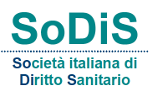A seguito della ricomprensione del gioco d’azzardo nel campo delle libertà fondamentali, un composito di tensioni tra gli Stati membri sono sorte. Nonostante i ripetuti inviti da parte della Commissione non è avvenuto quel processo di armonizzazione normativa disciplinato dall’art 114 TFUE. Gli Stati sono pertanto liberi di fissare gli obiettivi della politica di gioco da perseguire definendo altresì il livello di protezione da raggiungere al fine di tutelare la salute dei consumatori. Ciò comporta delle restrizioni alle libertà fondamentali. Si intende esaminare la portata dei motivi imperativi di interesse generale sia nella prospettiva della Corte di giustizia, sia dei lavori di soft law di altre istituzioni. Commissione, Parlamento europeo e Comitato economico e sociale si sono infatti coordinati affinché un intervento effettivo fosse realizzato. L’efficacia tangibile di tali interventi risulta però incerta. Di qui la necessità di riesaminare l’adozione di una normativa comune.
Following the introduction of gambling in the field of fundamental freedoms, a series of tensions among member States arose. In spite of the repeated calls from the Commission, the process which aimed to harmonize the rules – art 114 TFUE – didn’t happened. For that reason the States are free to establish the political objectives concerning the game of change they want to pursue but at the same time, they have to definite the level of protection in order to defend the health’s consumer. That means the restrictions on basic liberties. We intend to consider the main reason which are general interest both for the Court of justice and for the work of soft law regarding other institutions. The Commission, the European Parliament and the Economic and Social Committee are working together so that a real aid can be carried out. The concrete benefit of these interventions is still uncertain. Consequently we need to re-examine the adoption of a common set of rules.


